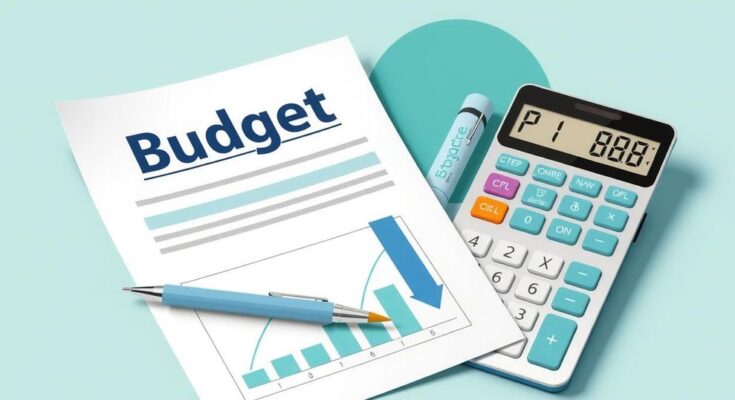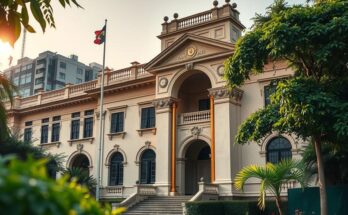South Africa proposes a reduced VAT increase from 15%, raising it by 0.5% in May and another 0.5% in 2026. Opposition from the Democratic Alliance complicates support for the budget. The Treasury underscores the necessity of the tax hike to fund essential services, facing new spending pressures. The budget deficit is projected at 5.0% of GDP, with public debt anticipated to peak at 76.2% of GDP.
South Africa’s National Treasury has revised its budget proposal, suggesting a smaller increase in value-added tax (VAT) to alleviate tensions within its coalition government. Initially, a two-percentage-point hike was proposed, but opposition from the African National Congress’ (ANC) coalition partner led to the postponement of the budget. The updated proposal now includes an increase of 0.5 percentage points starting May 1, followed by another 0.5 percentage point rise in 2026.
Prior to the Finance Minister Enoch Godongwana’s announcement, John Steenhuisen, Leader of the Democratic Alliance, expressed continued opposition to the budget. This budget represents a significant challenge for South Africa’s coalition government, formed after the ANC lost its parliamentary majority in 2022. The ANC requires support from at least one major party to pass the budget, while opposition remains from both coalition and external parties, including the Economic Freedom Fighters.
The Treasury emphasizes the necessity for this tax increase to address persistent spending demands aimed at funding crucial sectors such as health, education, and rail infrastructure. Godongwana stated that alternatives were carefully considered, and a tax hike emerged as the most viable option to avoid deeper spending cuts. The new tax measures are projected to yield an additional 28 billion rand, considerably less than the previously anticipated 58 billion rand.
The revised budget indicates a projected budget deficit of 5.0% of GDP for the 2025/26 fiscal year, with public debt expected to peak at 76.2% of GDP. Furthermore, consumer inflation is likely to increase as a result of the VAT hike, according to the budget report.
In conclusion, South Africa’s National Treasury has adjusted its budget proposal to include a smaller VAT increase amidst significant political contention. The success of this revised budget remains uncertain, as bipartisan support is essential for its passage. The proposed tax measures aim to address crucial funding needs, while the potential rise in consumer inflation adds another layer of complexity to the fiscal landscape.
Original Source: www.cnbcafrica.com




